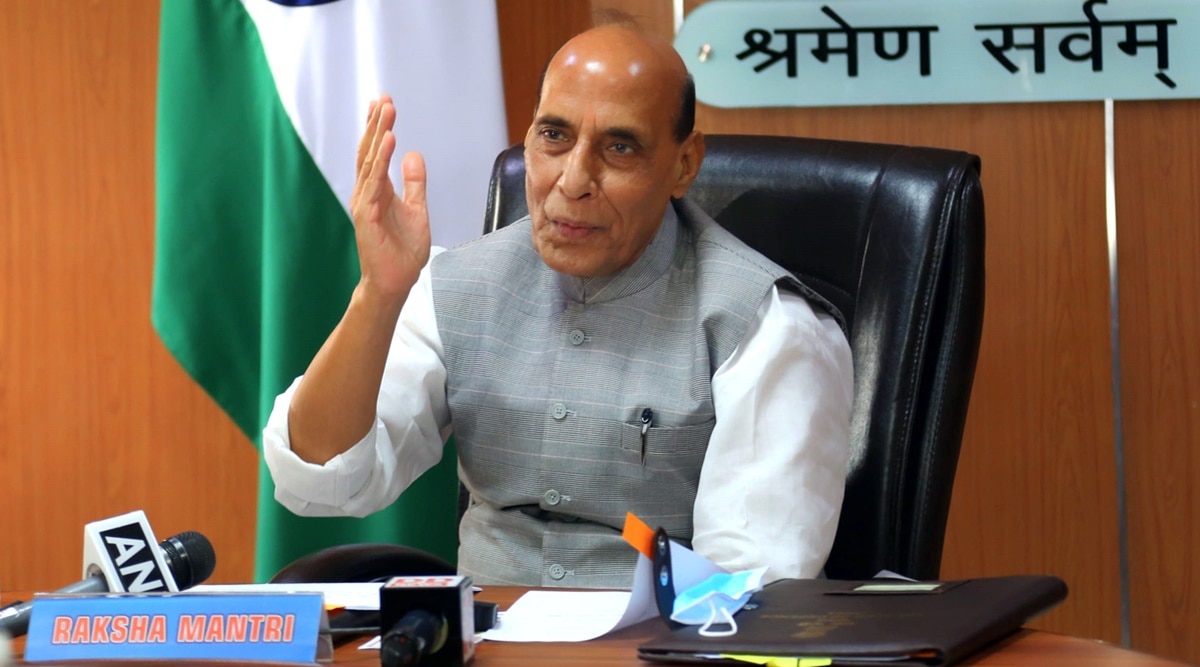 Union Defence Minister Rajnath Singh gave nod to the policy on Saturday. (File Photo)
Union Defence Minister Rajnath Singh gave nod to the policy on Saturday. (File Photo) Setting a clear timeline for compilation, publication, archiving and declassification of the histories of India’s wars and operations, the Ministry of Defence has come out with a new policy which stipulates that events must be officially recorded within five years.
It says “records should ordinarily be declassified in 25 years” and “records older than 25 years should be appraised by archival experts and transferred to the National Archives of India once the war/operations histories have been compiled”.
The government will, however, continue to have discretionary power over withholding records it deems sensitive – one such example is the Henderson Brooks-Bhagat report. An operations review of the Indian Army in the 1962 war with China, the report has not been made public though it has been six decades since the war.
The need for quick compilation and publication of war histories has been repeatedly underlined in the past. Sources said that though reports were prepared, many remained with the respective services or other branches, and were not collated or produced centrally at the Ministry of Defence. That is set to change with the new policy.
In a statement Saturday, the Ministry of Defence said Defence Minister Rajnath Singh “approved the policy on archiving, declassification and compilation/publication of war/operations histories by the Ministry of Defence.”
“The policy envisages that each organisation under the Ministry of Defence such as Services, Integrated Defence Staff, Assam Rifles and Indian Coast Guard, will transfer the records, including war diaries, letters of proceedings & operational record books, etc., to the History Division of Ministry of Defence (MoD) for proper upkeep, archival and writing the histories.”
Why war histories matter
WAR HISTORIES give an accurate account of events, authentic material for academic research, and help counter rumours. Earlier, reports on wars and operations were never made public. That is set to change now because information will be collated and reports prepared centrally.
“The responsibility for declassification of records rests with the respective organisations as specified in the Public Record Act 1993 and Public Record Rules 1997, as amended from time to time.”
“According to the policy, records should ordinarily be declassified in 25 years. Records older than 25 years should be appraised by archival experts and transferred to the National Archives of India once the war/operations histories have been compiled,” it said.
“The History Division will be responsible for coordination with various departments while compiling, seeking approval and publishing of war/operations histories. The policy mandates constitution of a committee headed by Joint Secretary, MoD and comprising representatives of the Services, MEA, MHA and other organisations and prominent military historians (if required), for compilation of war/operations histories.”
The committee, the Ministry said, should be formed within two years of completion of war/operations. Thereafter, collection of records and compilation should be completed in three years and disseminated to all concerned.
“The requirement of having war histories written with a clear-cut policy on declassification of war records was recommended by the Kargil Review Committee headed by K Subrahmanyam as well as the N N Vohra Committee in order to analyse lessons learnt and prevent future mistakes. Post Kargil War, GoM recommendations on national security also mentioned the desirability of authoritative war history,” the Ministry said.
- The Indian Express website has been rated GREEN for its credibility and trustworthiness by Newsguard, a global service that rates news sources for their journalistic standards.

